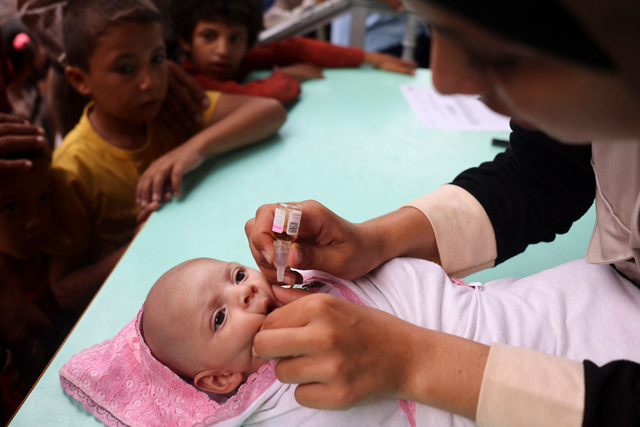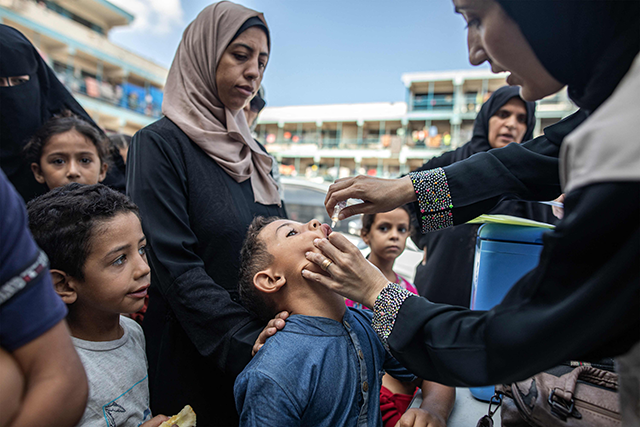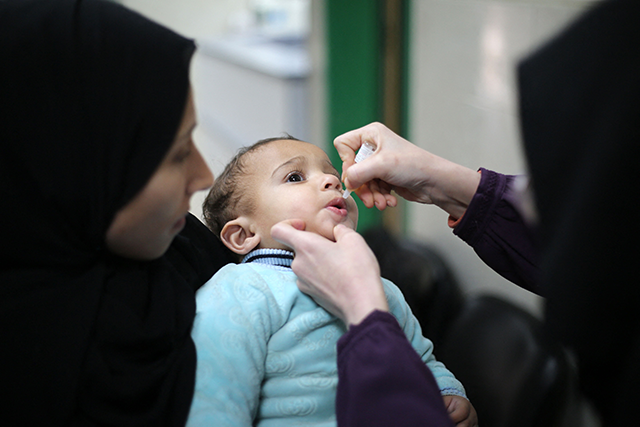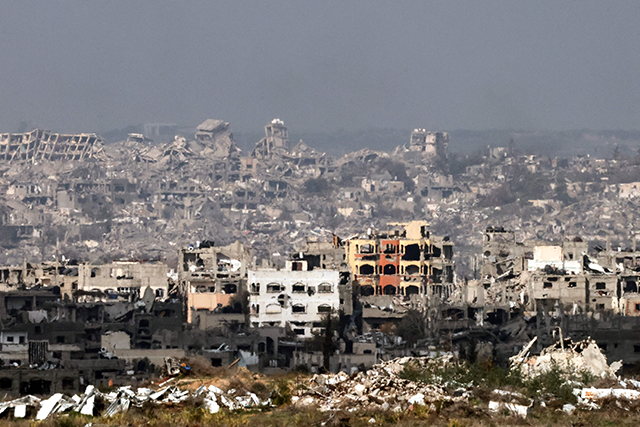WASHINGTON/GENEVA — The United States on Tuesday called for urgency and flexibility to finalise an agreement between Israel and Hamas for a truce in Gaza, after the recent deaths of six hostages.
"There are dozens of hostages still remaining in Gaza, still waiting for a deal that will bring them home. It is time to finalise that deal," State Department spokesman Matthew Miller told reporters.
"The people of Israel cannot afford to wait any longer. The Palestinian people, who are also suffering the terrible effects of this war, cannot afford to wait any longer. The world cannot afford to wait any longer," Miller said.
Miller said that the United States will work "over the coming days" with mediators Egypt and Qatar "to push for a final agreement."
One key sticking point has been Israeli Prime Minister Benjamin Netanyahu's insistence that Israeli troops remain at the border between Gaza and Egypt.
"We are opposed to the long-term presence of IDF troops in Gaza," Miller said, referring to the Israel Defense Forces.
"Finalizing an agreement will require both sides to show flexibility. It will require that both sides look for reasons to get to yes rather than reasons to say no."
Pressure has been growing on Israel with Britain's new Labour government on Monday saying it would stop some arms exports to Israel due to the "clear risk" they could be used in a serious breach of international humanitarian law.
Britain informed the United States, a close ally of both countries, before it made the decision, Miller said.
"It's not that we disagree with the UK position, it's that the UK makes an assessment based on their legal framework," Miller said.
"We make an assessment based on our own legal frameworks," he said, adding that the United States was still reviewing incidents.
The State Department in May said it did not have enough evidence to block shipments of weapons but that it was "reasonable to assess" that Israel has used arms in ways inconsistent with standards on humanitarian law.
The United States provides about $3 billion in weapons to Israel each year.
Meanwhile, WHO said on Tuesday that its emergency polio vaccination campaign in Gaza has reached more children than expected, with 161,000 receiving their initial dose in the first two days.
The World Health Organisation added that the first round of the vaccination drive would take another 10 days.
With Gaza lying in ruins and the majority of its 2.4 million residents forced to flee their homes due to Israel's military assault -- often taking refuge in cramped and unsanitary conditions -- disease has spread.
After the first confirmed polio case in 25 years, a massive vaccination effort began on Sunday, with localised "humanitarian pauses" in fighting.
The campaign aims to fully vaccinate more than 640,000 children in the besieged territory, devastated by almost 11 months of war.
Mainly affecting children under five, polio can cause deformities, paralysis and in some cases death.
Rik Peeperkorn, the WHO's representative for the Palestinian territories, said it was vital to reach at least 90-percent coverage to avoid the spread of the disease both within Gaza's borders and beyond.
The campaign began in the central part of the densely populated Gaza Strip, where the WHO initially expected to vaccinate 156,500 children under the age of 10.
"Our target for the central zone was an underestimation," Peeperkorn said, adding this was probably due to more people being crowded into the area than anticipated.
He said the vaccination drive was expected to shift to southern Gaza on Thursday, with the aim of immunising some 340,000 children there.
It would then move to the north of the strip, where around 150,000 will be vaccinated.
"We still have 10 days to go at least" for the whole first portion of the campaign, Peeperkorn said, and the rollout of the necessary second dose would begin in four weeks' time.
'Extremely concerned'
As he related his visit to a health centre handing out the vaccine, Peeperkorn said he was "not even so surprised" the campaign had gotten off to a good start.
"There were so many -- the fathers, mothers -- bringing their children in, and children really proud and happy that they got vaccinated."
He pointed to Gaza's "high vaccination acceptance" with pre-war routine vaccine coverage of between 90 and 95 percent, "which is actually much better than a lot of high income countries."
But the WHO representative warned the agency was "extremely concerned" by Gaza's wider health situation.
With only 16 of 36 hospitals operational, the strip has seen a "huge increase in infectious diseases".
"We've seen more than a million, mainly children, diagnosed with acute respiratory infection," Peeperkorn said, adding that more than 600,000 children had suffered from diarrhoea.
While polio vaccinations are best carried out in house-to-house campaigns, Peeperkorn said that those are impossible in Gaza as "there's very few houses left and people are everywhere".




















